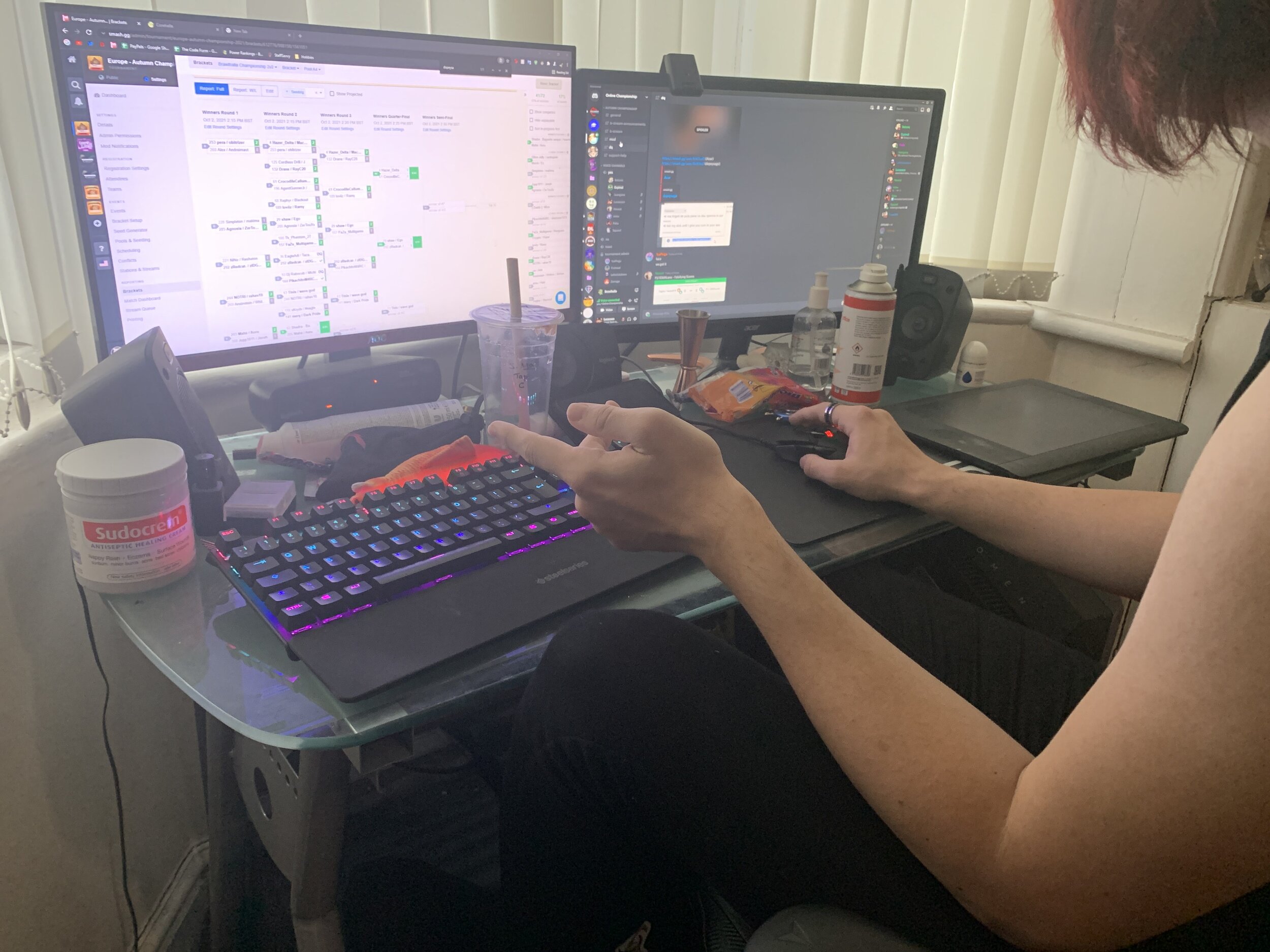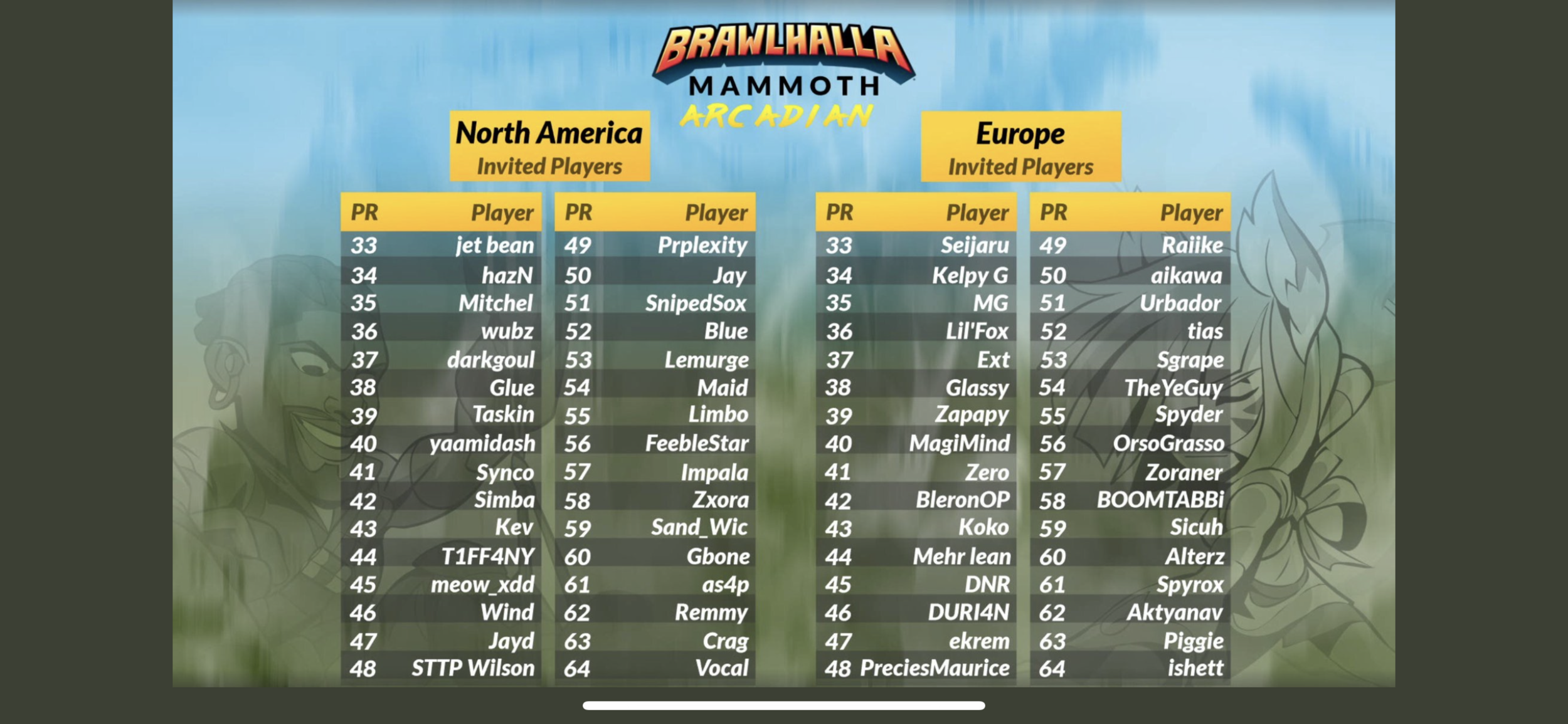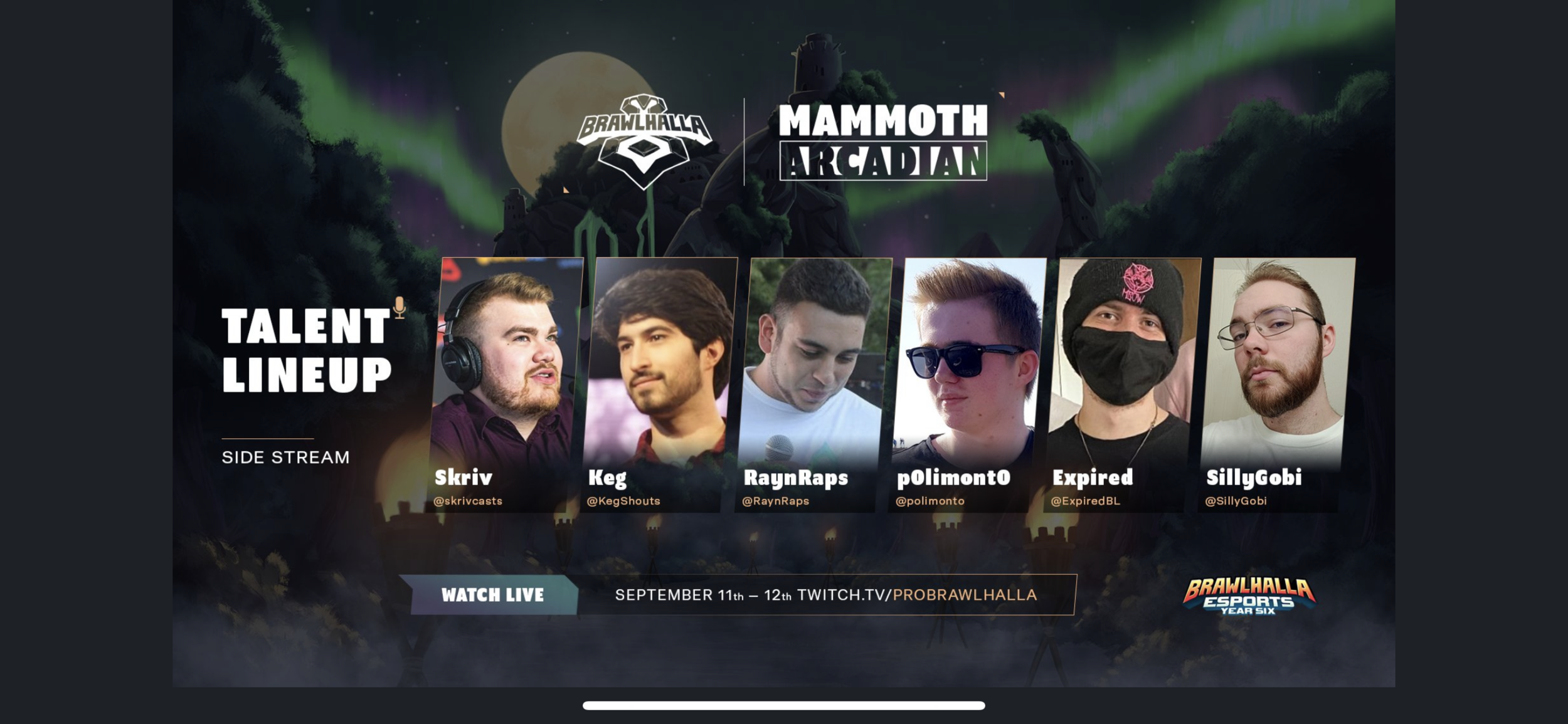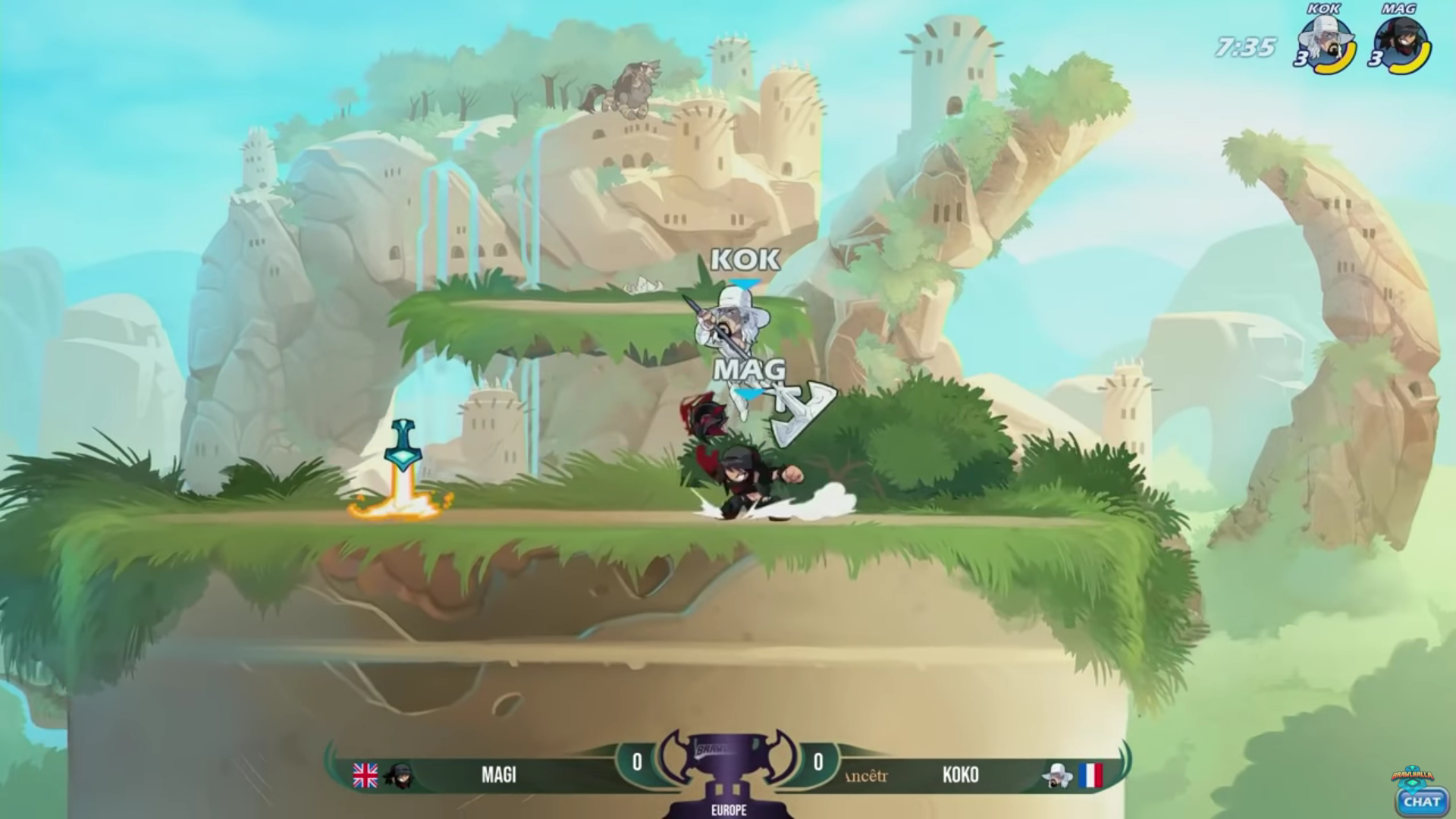Behind The Scenes Of An esport Tournament In The Age Of COVID-19
Recently I got the chance to sit in on one of the production rooms of the Brawlhalla Arcadian esports Tournament. These tournaments are a mystery to me. I don’t interact with the esports genre outside of what I stumble across on Twitter. It's difficult to look behind the curtain when I don’t even understand what’s going on in the front. That's not a dig at esports - in fact, after watching it in action the more I see people enjoy it, and the more interested I become in the whole scene. It does, however, give me the unique perspective of an outsider on the inside. Often esports is seen as ‘kids getting money for playing games’ by those who don’t appreciate it, but it’s clearly so much more than that.
Say hi to Lucaceon and their dope hair!
I got to see the perspective of Lewis ‘Lucaceon’ Gibbons, one of the side stream assistant producers. Their role was to relay information to the livestream team so updates on the tournament's progress could be displayed on screen. Lucaceon’s role included matching the colour of character skins to icons for player info, bracket information, information about players, and their ranking in the tournament. It’s already far more complicated than the off-side rule, and the tournament hasn't even started. The side stream itself serves as a second view of the tournament, allowing for the showcasing of more matches than what a single stream would provide. At peak times, the side stream reached over 1,000 viewers, while the main stream peaked around 40,000.
The first thing I caught onto was how professional these tournaments are. The Brawlhalla Arcadian esports Tournament was a 32 person invitational organised by the Brawlhalla dev team, Blue Mammoth Games. The participants were selected from players ranked 33PR to 64PR (Power Rank), a scoring system from the game itself. Players are then ‘seeded’ into matches based on this power rank. The concept follows the logic of ‘lowest against highest’, so if the highest player was a 2PR player and the lowest was a 33PR player, they would go against each other in the first match of the bracket. Nothing in this tournament is random.
I love how a TV production has like a million computers and a $100,000 vMix machine while esports producer is like “lol, I have a second monitor but I mainly use it for discord though.”
Now onto the people behind the production. There are two shoutcasters - the ones who talk about what’s happening in the game. The tournament itself had about 40,000 people watching at any one time, split between the two streams, with a lean towards the main stream over the side stream. The casters report on what they’re seeing, while people like Lucaceon pull operational info from behind the scenes. Lucaceon works in tandem with the stream manager, but the system is set up using automatic functions, meaning that Lucaceon can send information to the stream that immediately gets put in front of the audience. There's a sense of shared responsibility, and with such a small team running a viewing experience that demands a clear and consistent flow of content, I could see the pressure they were under. Lucaceon likened it to Pulsar: Lost Colony, a game where players collaborate as members of a spaceship crew - each part of the tournament management feeds into the others like those photoshop layers you can never keep track of.
Tag yourself. I’m “Glue”.
There is an astonishing amount of care and attention put into the microelements of the presentation. Lucaceon and the other producers were dealing with large amounts of fluctuating information that was necessary for the viewer experience. Imagine trying to follow 16 different American football games and having to report everything from each match’s score to the player's shoe size, and you’ve got a pretty good idea of the scope of the task. Additionally, the casters have to know about the competitors and their playstyles to accurately report to the audience the state of the match. Players even have their own stat sheets that the casters have to know at the drop of a hat.
Somehow, the casters never stop talking. These tournaments are all about information management, which means communication is key. The stream manager, Jack ‘Expired’ May, manages the main communication with the casters, dropping into their voice channel in the same way a news producer would get in the ear of a newsreader. The casters themselves, Polimonto, RaynRaps, Max ‘Keg’ Tompkins, Harvey ‘Skrig’ Rodgers and SillyGobi took it in shifts covering the matches and each one of them added a different ‘something’ to the broadcast. I want to note the understanding that these people have - they provide an almost instinctive stream of information to the viewer, in tandem with the beats and rhythm of the game.
Cheat sheet for a quiz that’s only question is, “Name six people who could beat you in a tongue twist competition”.
For me, the most interesting part of watching from behind the scenes was the scores and bracket stats, even when I was watching a minotaur smack a wolf with a stop sign. They are the anchor of the tournament. Imagine a nightclub without lighting, and you can picture a tournament without the numbers.
Ok, but like, that is a bunch of money too though…
But looking beyond that, there's a clear sense of community, comradery and pride around these tournaments. Lucaceon seemed to know everyone. They pointed out a player, T1ff4ny, a trans woman who openly repped the trans pride flag on their avatar. In the same way that professional football players all vaguely know each other, everyone in the tournament knew each other as well. These people were friends and professionals, both in front of and behind the screens. And even though most of this was produced from bedrooms, there was a quality that I don’t think you could pay for. What people don’t mention when they offer negative or financial views of esports is that the medium itself would not exist without the games community behind it. Every professional involved - casters, producers, players - they’re all found from within the player base itself.
Oh yeah, I knew I was forgetting to include an image of something… THE VIDEO GAME.
And I think that's what people don’t understand about esports. Headlines like ‘Teenager Wins a Million Bucks in Fortnite Tournament’ barely scratch the surface of what esports actually is. I hadn’t watched any professional esports tournaments before, and I’ve barely even played any games that have an esports scene, but after seeing it from an insider's perspective I can appreciate them for more than just their face value. Money plays a role, as it does in everything, but you can only capitalise on something people want already. These tournaments are about far more than just the money, it's a community formed around passion, and producers like Lucaceon are brimming with it.












